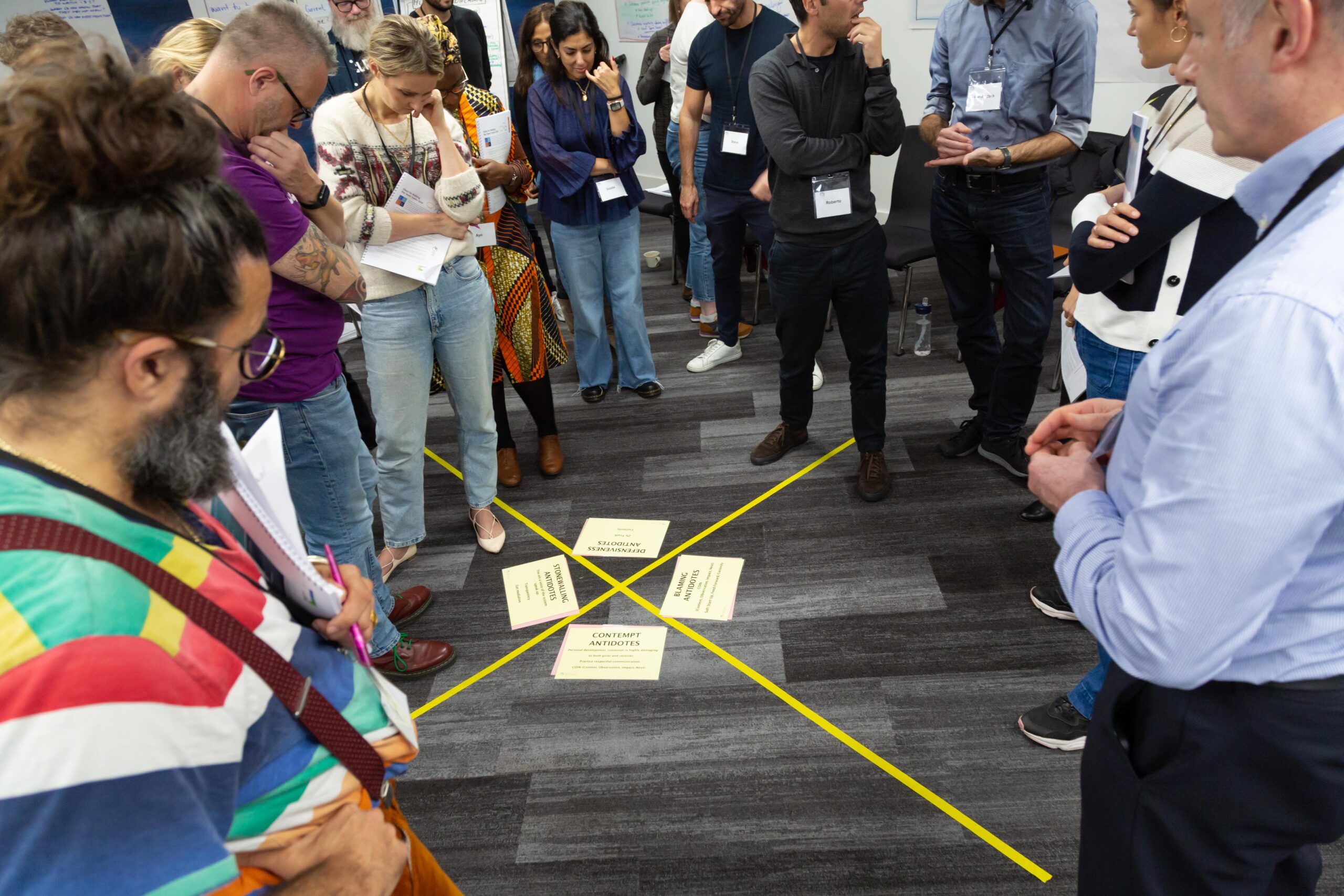Building Resilience in Relationship Systems: A Roadmap through ORSC
Resilience is imperative for teams and relationships to navigate conflict, adapt to change, and emerge stronger. Organisation and Relationship Systems Coaching (ORSC) provides a unique and effective roadmap for cultivating resilience within relationship systems.
Let’s explore how the principles and practices of ORSC contribute to the building of resilience to thrive in the face of challenges.
1. Systemic Thinking: The Foundation of Resilience
At the core of ORSC lies the principle that relationship systems are in a constant state of emergence. Coaches guide teams to embrace systemic thinking, viewing challenges not as isolated incidents but as integral parts of the system’s evolution. This perspective helps in reframing setbacks as opportunities for growth and adaptation.
2. Embracing Change as a Constant
Resilience is deeply tied to the ability to embrace and navigate change. ORSC equips teams with tools and techniques to not only accept change but to see it as a natural and vital part of the system’s journey. Through interventions like Systemic Constellations, teams gain insights into the systemic impacts of change, fostering a more adaptive mindset.
3. Conflict as a Catalyst for Growth
ORSC introduces the COIN model (Context, Observation, Impact, and Next), which guides teams through conflict resolution. Instead of avoiding conflicts, ORSC coaches help teams see them as catalysts for growth and transformation. Resilient teams learn to navigate conflicts constructively, using them as stepping stones toward a more harmonious and adaptive state.
4. Deep Democracy: Harnessing Diversity for Resilience
Diversity within a team is a wellspring of resilience. ORSC employs the concept of Deep Democracy, emphasising the importance of including all voices within a system. By leveraging the richness of diverse perspectives, teams become more resilient, drawing on a broader range of insights and solutions to navigate challenges.
5. Nurturing Open Communication
Communication is a cornerstone of resilient relationships. ORSC coaches facilitate open and honest communication within teams, creating a culture where individuals feel safe expressing their thoughts and concerns. This openness builds trust and collaboration – key elements in building resilience.
6. Rituals and Ceremonies: Marking Transitions
ORSC recognises the significance of rituals and ceremonies in marking transitions. Resilient teams understand the importance of acknowledging and learning from experiences. Through rituals, they celebrate successes, learn from failures, and collectively move forward with a sense of purpose and unity.
7. Learning from Emergence
ORSC teaches teams to learn from the emergent nature of relationship systems. Resilience is not just about bouncing back from challenges but about learning and evolving through them. By continuously adapting based on emergent insights, teams become more flexible and better equipped to navigate uncertainties.
8. Building a Culture of Appreciation
ORSC coaches guide teams in building a culture of appreciation. Resilient teams recognise and celebrate each other’s strengths. This positive reinforcement enhances individual well-being and contributes to a collective strength that acts as a buffer against external challenges.
ORSC serves as a framework for building resilience within relationship systems. By shifting to systemic thinking, embracing change, navigating conflicts, and cultivating open communication, ORSC empowers teams to thrive in the face of challenges. Resilience, when teamed with ORSC, becomes not just a response to adversity but a way of being—a dynamic and adaptive state that propels teams toward sustained success.






